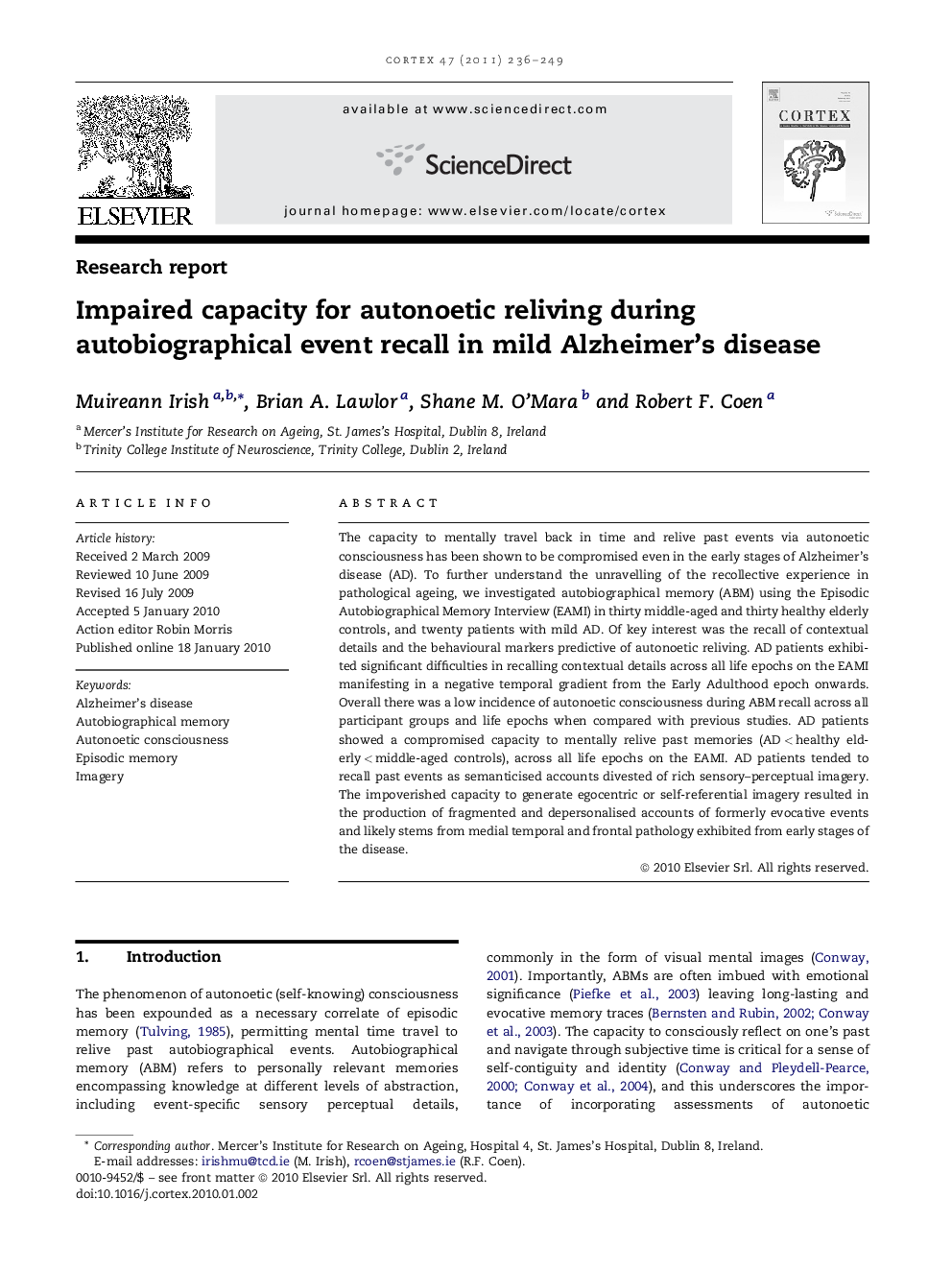| Article ID | Journal | Published Year | Pages | File Type |
|---|---|---|---|---|
| 942235 | Cortex | 2011 | 14 Pages |
The capacity to mentally travel back in time and relive past events via autonoetic consciousness has been shown to be compromised even in the early stages of Alzheimer's disease (AD). To further understand the unravelling of the recollective experience in pathological ageing, we investigated autobiographical memory (ABM) using the Episodic Autobiographical Memory Interview (EAMI) in thirty middle-aged and thirty healthy elderly controls, and twenty patients with mild AD. Of key interest was the recall of contextual details and the behavioural markers predictive of autonoetic reliving. AD patients exhibited significant difficulties in recalling contextual details across all life epochs on the EAMI manifesting in a negative temporal gradient from the Early Adulthood epoch onwards. Overall there was a low incidence of autonoetic consciousness during ABM recall across all participant groups and life epochs when compared with previous studies. AD patients showed a compromised capacity to mentally relive past memories (AD < healthy elderly < middle-aged controls), across all life epochs on the EAMI. AD patients tended to recall past events as semanticised accounts divested of rich sensory–perceptual imagery. The impoverished capacity to generate egocentric or self-referential imagery resulted in the production of fragmented and depersonalised accounts of formerly evocative events and likely stems from medial temporal and frontal pathology exhibited from early stages of the disease.
